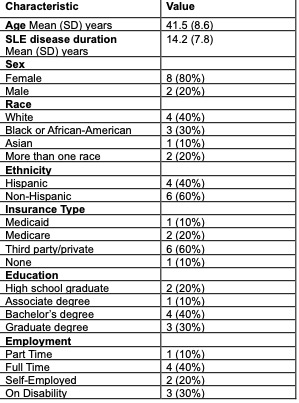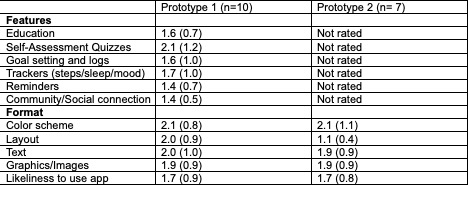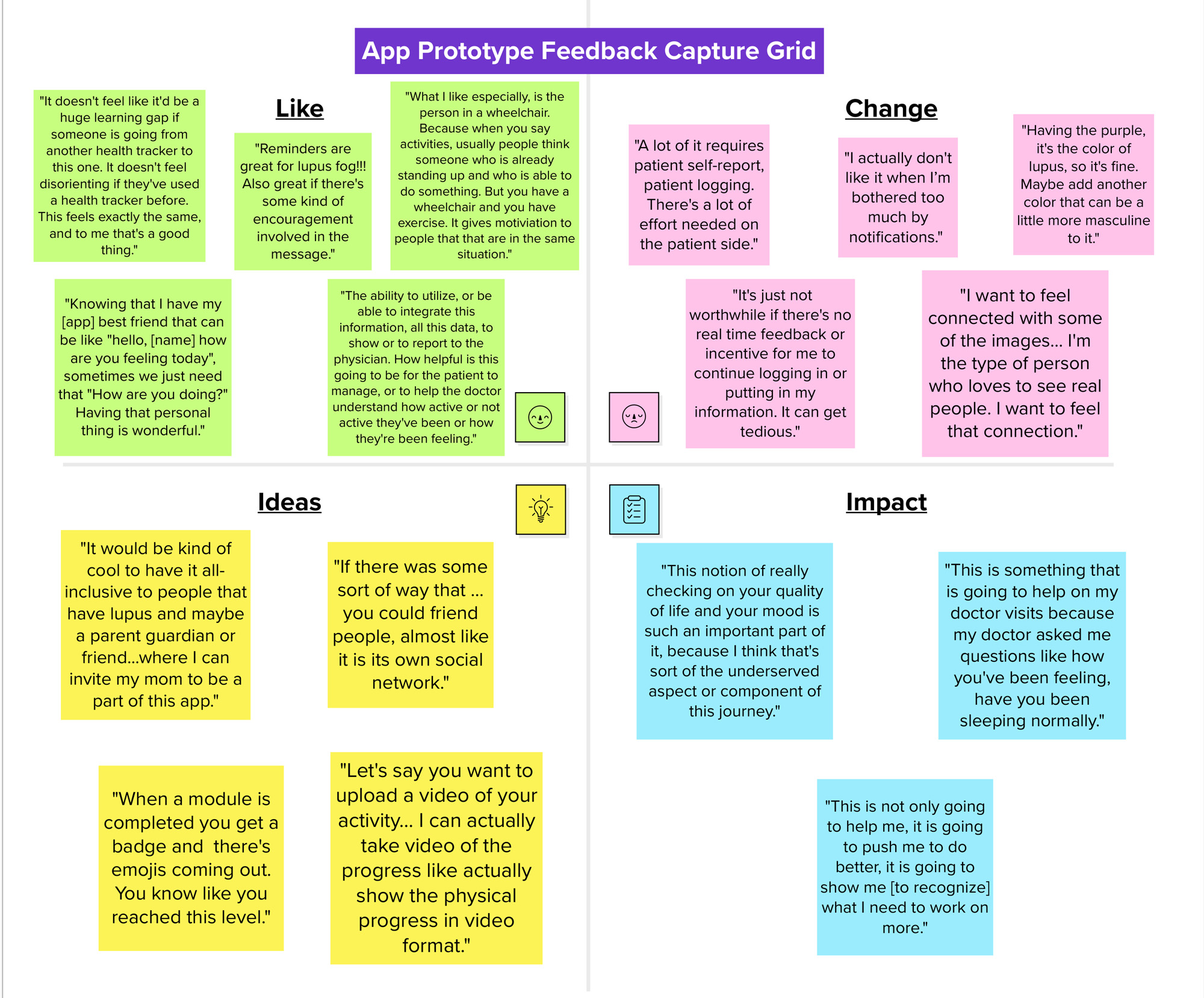Session Information
Date: Tuesday, November 14, 2023
Title: (2019–2038) Patient Outcomes, Preferences, & Attitudes Poster III
Session Type: Poster Session C
Session Time: 9:00AM-11:00AM
Background/Purpose: Mobile health (mHealth) technology offers promising tools to facilitate the self-management of chronic diseases, including systemic lupus erythematosus (SLE). However, currently available mHealth applications (apps) for SLE are of limited quality and functionality, having largely been developed without the direct input of individuals living with SLE. Human-centered design is a method of problem-solving that strives to put real people at the center of the development process and involves three steps: inspiration, ideation, and implementation. Here we describe the application of human-centered design methodology to elicit patient preferences and guide the development of an mHealth app for the management of fatigue in SLE.
Methods: Patient perspectives and preferences for an mHealth app addressing fatigue in SLE were explored in the inspiration phase through literature review, focus groups, and targeted conversations with patients. Key features for the app were identified and an initial prototype was developed in the ideation phase. Individuals with SLE reviewed the prototype in in-depth interviews and surveys. Participants were purposefully sampled around age, sex, race, ethnicity, and disease duration. They provided open-ended feedback on app functionalities and format, and rated features using a 5-point Likert scale. Interviews were conducted online using cloud-based video conferencing (Zoom) and were recorded, transcribed, and analyzed using a rapid analysis protocol and feedback capture grid. The prototype was iteratively refined in multiple cycles of feedback.
Results: Twelve patients from two academic medical centers participated in two initial focus groups and brainstormed features and functionalities for the app. Research team members, including two patient stakeholders, developed an initial app prototype based on ideas generated in the inspiration phase. Ten individuals with SLE (Table 1) provided feedback on the initial prototype and subsequent iterations in two rounds of surveys and interviews. Overall, participants rated the features and format of the prototypes highly (Table 2) and over 80% reported they were likely or highly likely to use the proposed app. Several themes around preferences for the app emerged from the interviews (Figure 1), including the importance of 1) community/social connection; 2) accessibility and inclusion, and 3) options for customization and integration of the app with existing digital health tools and health care. Participants highlighted the potential of the app to facilitate self-management and improve quality of life, but noted sustained engagement as a possible challenge.
Conclusion: A patient-engaged, human-centered design approach provided valuable insights into patient preferences and priorities for an mHealth app for the management of fatigue in SLE. Feedback from the inspiration and ideation phases will inform iterative prototype refinement and guide app pilot testing (implementation).
To cite this abstract in AMA style:
Deck A, Singh K, Dantas L, LeClair A, Mandl L, McAlindon T, Chiu F, Gore-Massy M, Kasturi S. Development of an mHealth App for Lupus: Insights from a Human-Centered Design Approach [abstract]. Arthritis Rheumatol. 2023; 75 (suppl 9). https://acrabstracts.org/abstract/development-of-an-mhealth-app-for-lupus-insights-from-a-human-centered-design-approach/. Accessed .« Back to ACR Convergence 2023
ACR Meeting Abstracts - https://acrabstracts.org/abstract/development-of-an-mhealth-app-for-lupus-insights-from-a-human-centered-design-approach/



